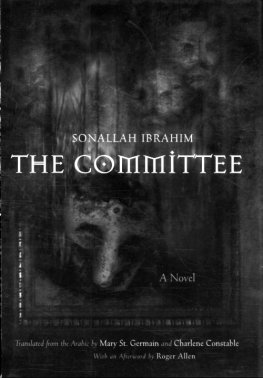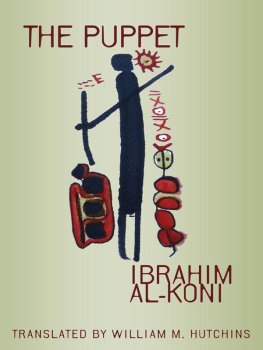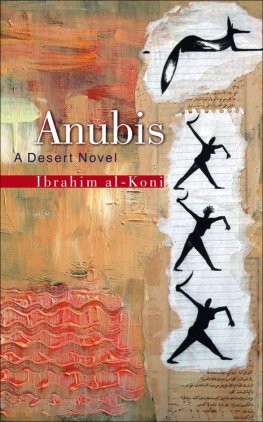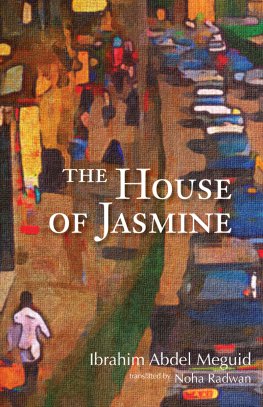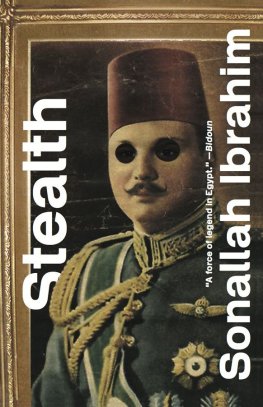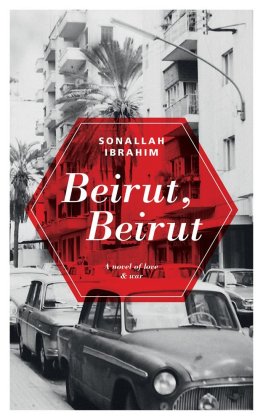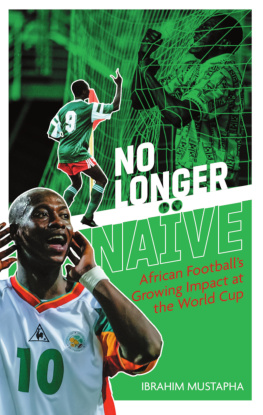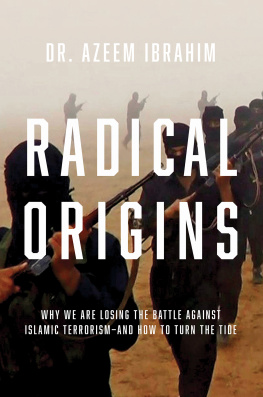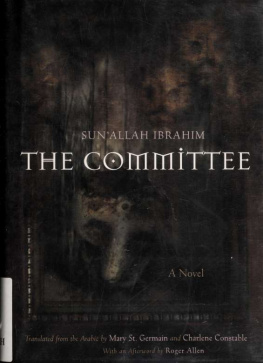Sonallah Ibrahim
The Committee
I arrived at the Committee's headquarters at 8:30 A.M., half an hour before my scheduled appointment. I had no difficulty finding the room reserved for interviews, just off a quiet, dimly lit side passage. An old man in a clean yellow jacket stood before the door. His features radiated the serenity that masks the faces of those who, having found themselves at the end of the road, surrender and retreat from the hubbub of life and the struggle to ride out its trials and tribulations.
The porter let slip that the Committee doesn't usually convene before 10 o'clock. This was par for the course. It annoyed me; I regretted having been punctual, crawling out of bed at the crack of dawn, without enjoying a full night's sleep.
The porter had the only seat, so I stood near him and set my Samsonite briefcase on the floor. I offered him a cigarette and lit one for myself. My heart beat violently the whole time, even though I tried to pull myself together and control my nerves. I kept telling myself that my confusion would lose me the opportunity they were granting me. I simply would not be able to concentrate, although I would desperately need that ability during the upcoming interview.
After a bit, I got tired of standing around, so I picked up my briefcase and walked all the way to the end of the long hallway. I turned and came back, keeping my eyes on the meeting room door, afraid the Committee might have arrived and summoned me. But the porter still sat in his place, staring calmly ahead. He worked his toothless mouth as though chewing something imaginary.
I paced up and down the passageway, looking at my watch from time to time. It was approaching 10:30 when I saw the porter jump to his feet and put his cigarette on the floor under his chair. He turned the handle of the door to the meeting room, opened it cautiously, and then disappeared behind it.
I hurried back to my place near his seat. My heart beat even more quickly than before. I expected he would ask me to enter when he came out, but he didn't; rather, after retrieving his cigarette, he resumed his seat and calmly continued smoking.
Finally, I took matters in hand and asked him affably whether the Committee had arrived.
"Only one of them," he said.
I prompted, "But I didn't see anyone enter the room?"
"There's another entrance."
I continued to stand beside him for half an hour while the Committee members arrived through the other entrance. The porter went to the buffet several times to prepare coffee for them. Each time, I tried to peek into the meeting room, but he consistently made a point of opening the door just enough to squeeze through, so that nothing would be revealed to me.
Once, he emerged from the meeting room carrying a leather shoe in one hand. He summoned the shoe-shine boy, who was standing at the end of the hall, and handed him the shoe. When the boy started to sit on the floor by the door, the porter scolded him and ordered him away to where he had been standing earlier.
I began pacing again, shifting my briefcase from hand to hand. I was tired. I hadn't slept well the night before in spite of having taken a sleeping pill and so a slight headache hovered at the back of my head. I had not foreseen this possibility, although I had done nothing during the whole of the last year except prepare for what might happen today. I did not dare leave to look for an aspirin; the Committee might summon me in my absence.
As I paced, I drew near the shoe-shine boy, who was enthusiastically cleaning the "Committee's shoe." For that's how I thought of it, and I liked the turn of phrase so well I smiled. I saw that he had finished polishing the surface of the shoe, had turned it over, and begun daubing polish on its sole.
I turned and walked back to where the porter sat and set my briefcase on the floor by him. I offered him a cigarette, lit one for myself, and stood there smoking. Soon the shoe-shine boy finished and handed the shoe to the porter, who received it reverently and carried it in. After a while he emerged, carrying a brass tray loaded with empty coffee cups. He took it to the buffet and sat down again.
Because it was almost 11:30 and no one else had joined me, I assumed I was the only one the Committee would see that day. And so it occurred to me that the Committee was already discussing my case. This was a very distressing thought. It meant, quite simply, that they were already forming an impression of me. For many reasons, it was more likely this impression would be negative, which, in and of itself, would decrease my chances of swaying them through a personal appearance. I knew they had plenty of reports on me. Never theless, I had understood from the first that my fate rested on this meeting. This did not mean it was I who had pressed for this interview; on the contrary, I had been told there was no alternative. And so, there I was.
At exactly noon, the porter went into the meeting room, came right back out, and asked my name. Then he motioned me in.
I took my briefcase in my right hand and fingered my necktie with the left to be sure it was straight. Assuming a confident smile, I placed my hand on the white porcelain doorknob, which I had looked at dozens of times in the last three hours. I turned it, pushed, and entered the meeting room.
Right off I erred on two counts.
In my confusion, which I vainly tried to hide, I forgot to close the door behind me. Then I heard a female voice nearby say tactfully, "Please close the door."
I turned scarlet and went back to the door. Grasping the knob in my left hand, I pushed, but it wouldn't latch.
The door was old and required some pressure to close. I had my briefcase in my right hand, so I pressed with my knee. Sweat trickled down my forehead.
Then I heard the same tactful voice say, "Put the briefcase down and use both hands."
I realized I had lost the first round.
I had known the Committee would question me. Its goal wasn't limited to probing the breadth of my knowledge, but extended to finding the key to my personality and the caliber of my mental abilities. The content of the answer wasn't everything, although it did carry some weight. Rather, assertiveness was paramount.
As I have already said, I spent the past year preparing for this day in all kinds of ways. I devoted myself to studying the language the Committee uses in its interviews. I reviewed all I knew about various fields of learning. I reread philosophy, the arts, chemistry, and economics. I set myself hundreds of inconsistent problems, spending days and nights in search of answers. I followed quiz shows on television and consulted the equivalent sections of newspapers and magazines. Luck was on my side when I discovered that my brother, twenty years older than I, still kept a complete set of Believe It or Not. In a package held together with rubber bands, he had kept every issue since its first publication thirty years ago.
Not satisfied with this, I tried to form a clear idea of the Committee's work by searching out others who had appeared before it. Although I was sure there were many, I could only get in touch with a few. Most denied ever having gone before the Committee, or even denied all knowledge of its existence. The rest used the excuse that they had forgotten the details, so their reports were vague and contradictory. I got other tidbits of news from various sources, but they didn't help me either. The only thing I came up with was that there was no set method to the Committee's work.
When I tried to gather information about the Committee members, in hopes of getting an idea of their prejudices and predilections, I found a shroud of secrecy veiling their names and jobs. Everyone whom I asked regarded me with anxious and pitying looks.

